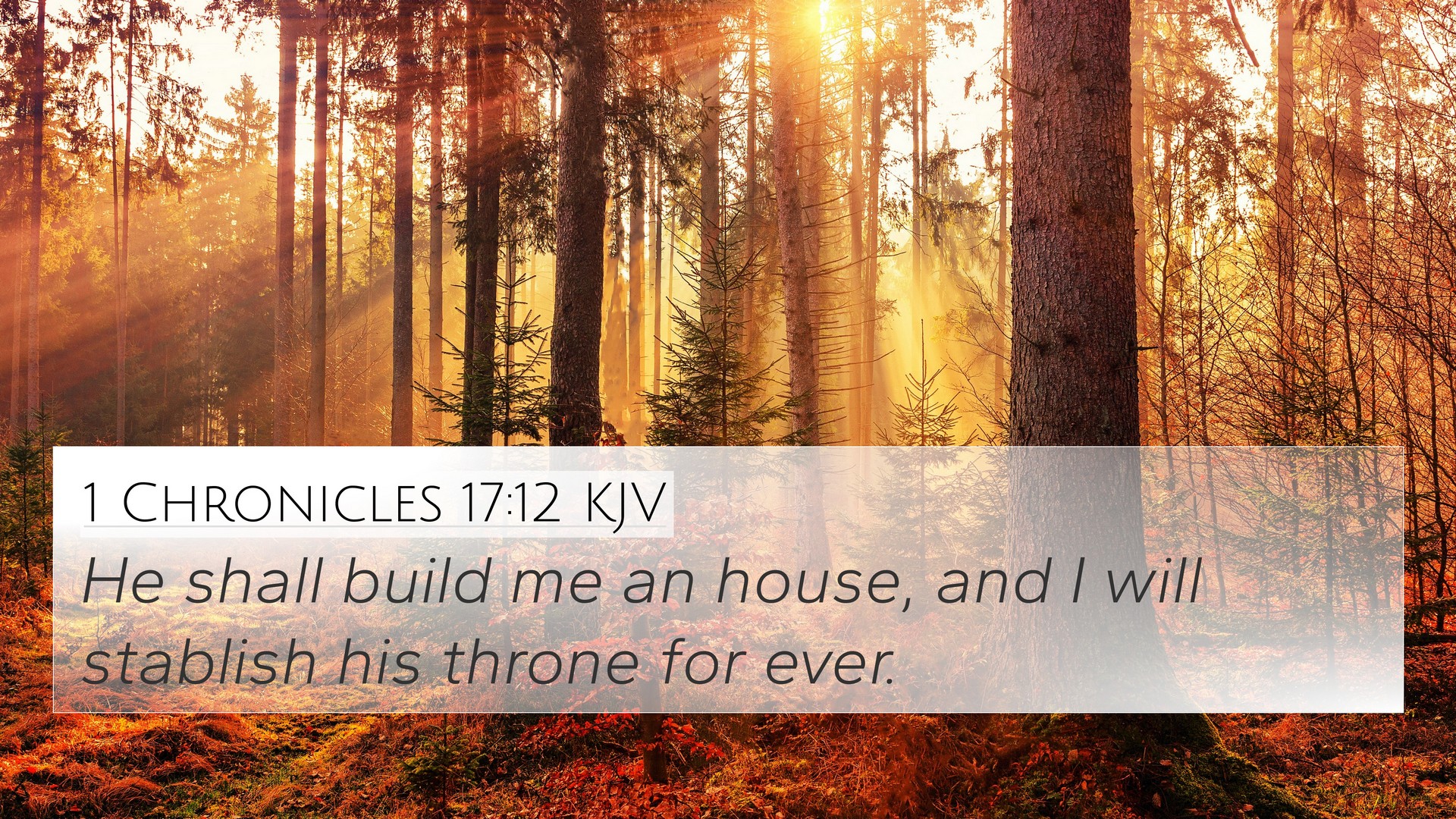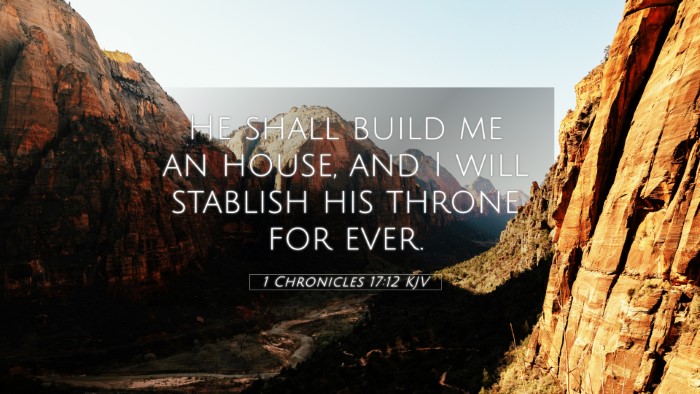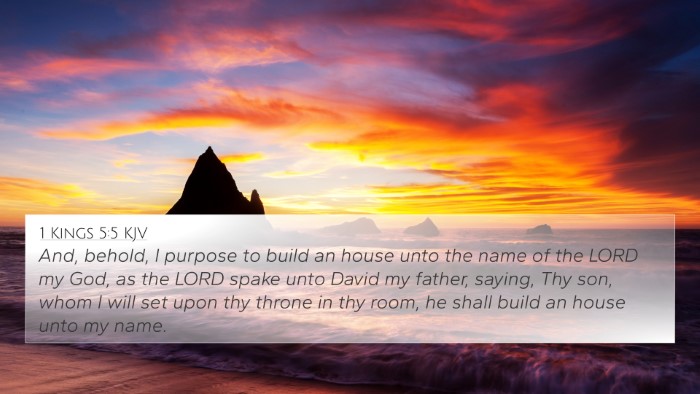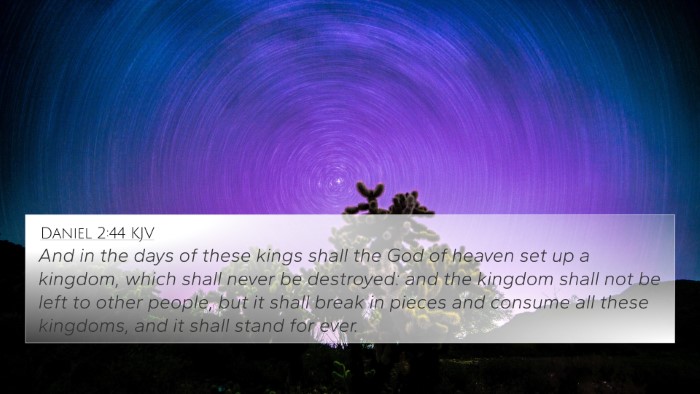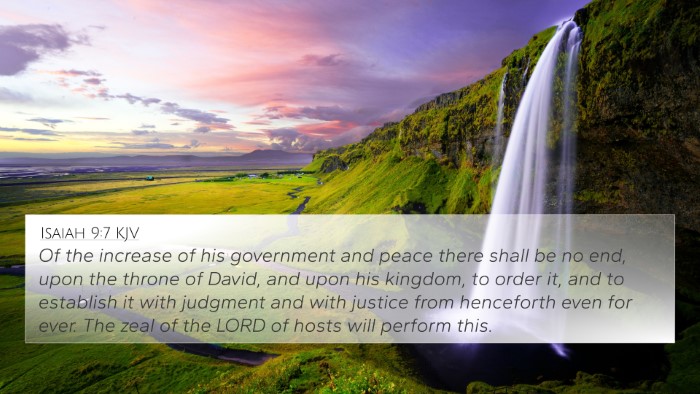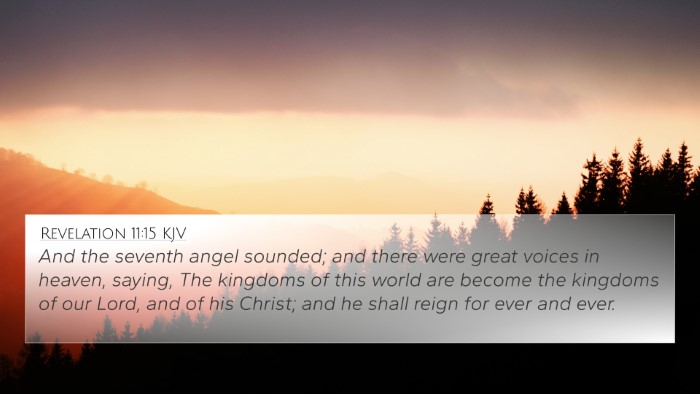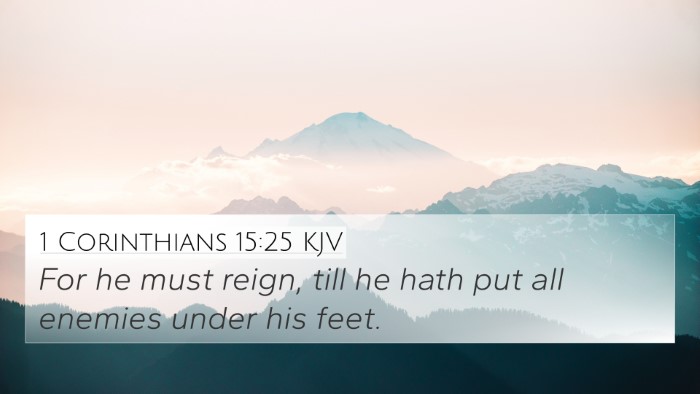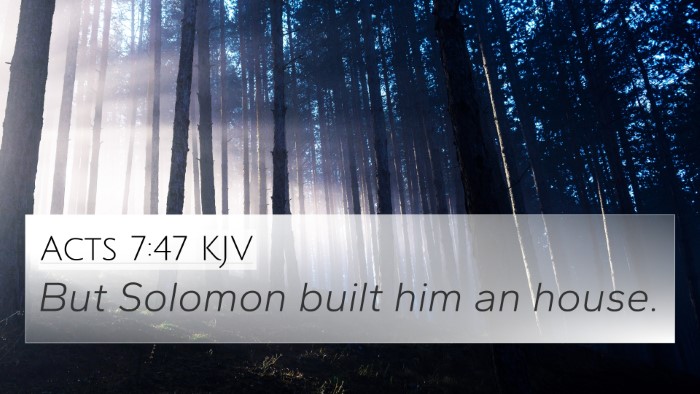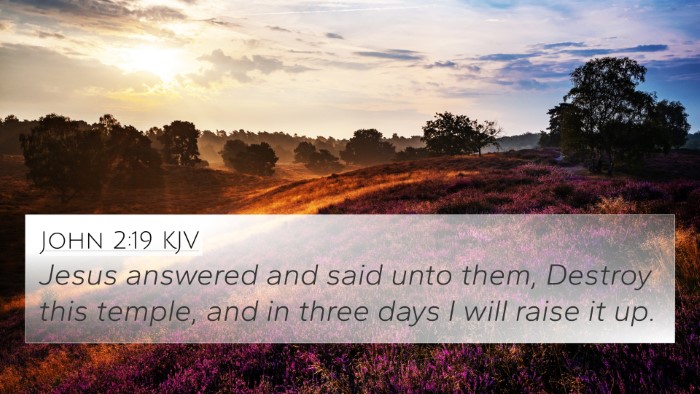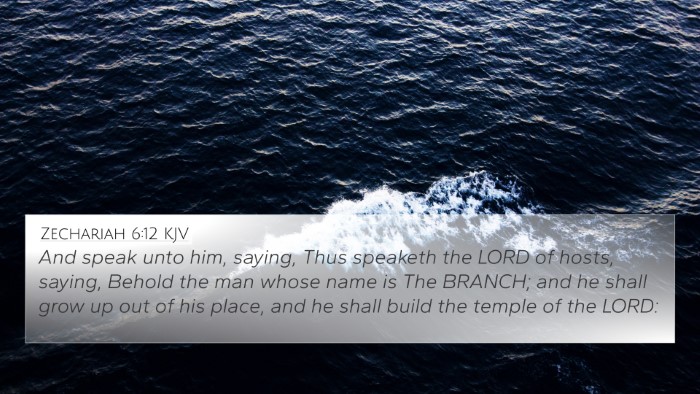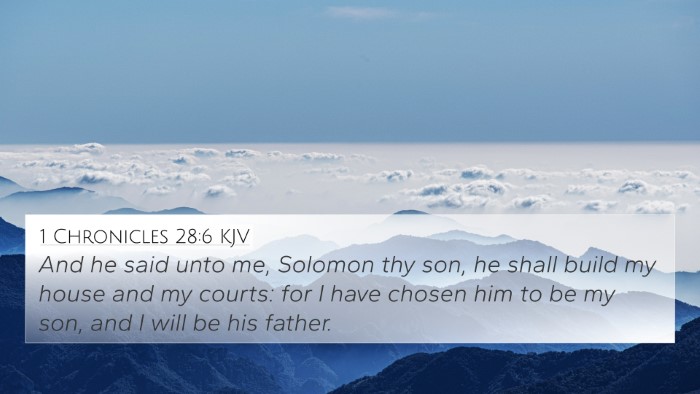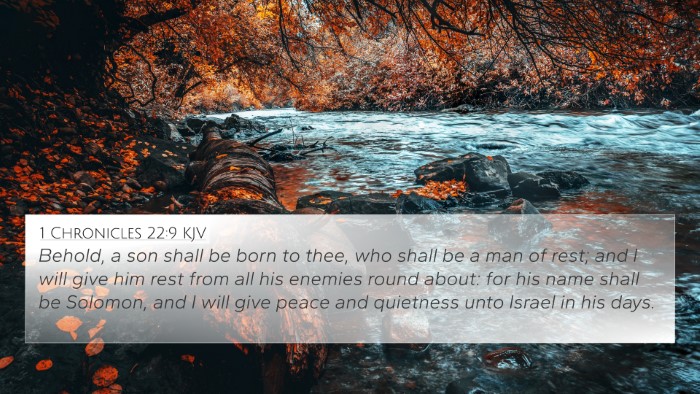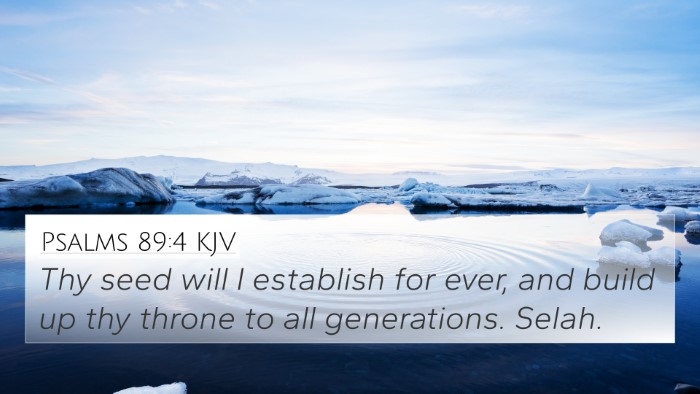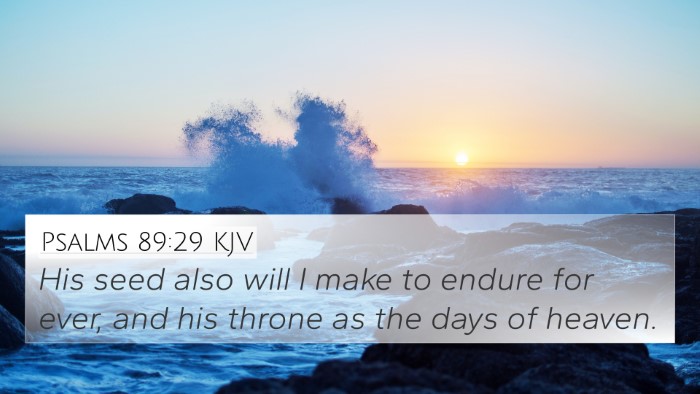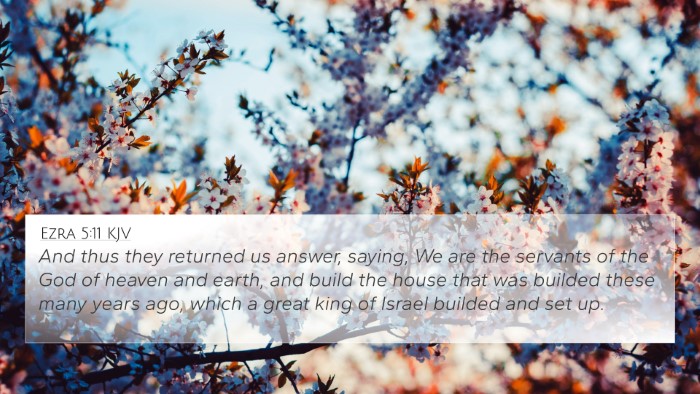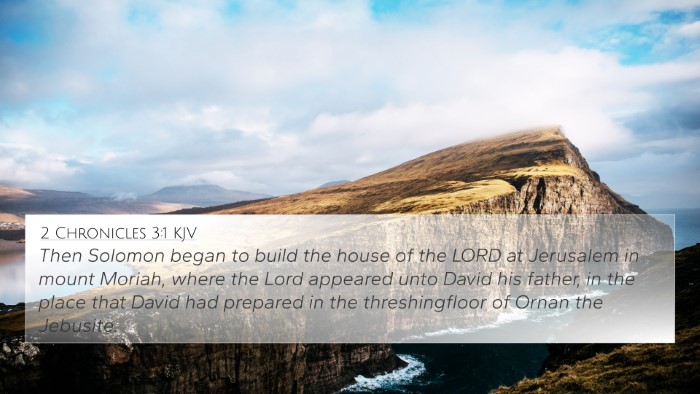Understanding 1 Chronicles 17:12
Verse (1 Chronicles 17:12): "He shall build me a house, and I will establish his throne for ever."
Summary of Meaning
This verse signifies God’s promise to David regarding his lineage and the future establishment of a kingdom through his son, Solomon. The building of the temple is symbolically associated with God dwelling among His people.
Commentary Insights
The significance of this verse can be explored through various commentaries:
-
Matthew Henry:
Henry emphasizes that the promise of building a house for God signifies the spiritual kingdom established through Christ, with a lasting reign. He notes God's grace in promising an eternal throne, highlighting the unconditional aspect of God's covenant with David.
-
Albert Barnes:
Barnes elaborates on the implications of God's promise, pointing out that though Solomon would physically build the temple, it is through Jesus Christ that the true and everlasting spiritual house is constructed. This reflects the continuity of God's plan through generations.
-
Adam Clarke:
Clarke connects the establishment of David's throne to God's authority and the divine nature of the kingdom. He highlights that this prophecy points beyond Solomon to the greater Son of David, Jesus, who reigns forever.
Key Themes in 1 Chronicles 17:12
This verse touches upon several important biblical themes:
- The Promise of God: This assurance emphasizes God's fidelity in keeping His promises throughout biblical history.
- The Davidic Covenant: Represents the ongoing relationship between God and David's lineage.
- The Future Kingdom: Suggests the ultimate reign of Christ as the fulfillment of this promise.
- Spiritual Edifice: Connects the physical temple with the metaphorical house God builds within His people.
Bible Cross-References
To deepen the understanding of 1 Chronicles 17:12, here are related Bible verses:
- 2 Samuel 7:13: "He shall build a house for my name, and I will establish the throne of his kingdom forever."
- Psalm 89:4: "I will establish your offspring forever, and build your throne for all generations."
- Luke 1:32-33: "He will be great and will be called the Son of the Most High... and of his kingdom, there will be no end."
- Acts 2:30: "Being therefore a prophet, and knowing that God had sworn with an oath to him..." (referring to David’s lineage and Christ's authority).
- Hebrews 1:8: "But of the Son, he says, 'Your throne, O God, is forever and ever...'"
- Isaiah 9:6-7: "For unto us a child is born... of the increase of his government there will be no end."
- 1 Peter 2:5: "You yourselves like living stones are being built up as a spiritual house..."
Conclusion
1 Chronicles 17:12 not only underscores God’s covenant with David but also serves as a bridge connecting the Old Testament promises with New Testament fulfillments. It emphasizes the theological significance of God's eternal kingdom through Jesus Christ, reflecting a central theme of salvation history.
Study Tools for Deepening Understanding
For those interested in cross-referencing Biblical texts and exploring the ties between different scriptures, a variety of tools for Bible cross-referencing are available:
- Bible Concordance: Useful for finding specific words and themes throughout the Bible.
- Bible Cross-Reference Guide: Provides a list of related verses.
- Cross-Reference Bible Study: Methods to interpret Scripture through cross-references.
- Bible Reference Resources: Invaluable for deeper study of themes and patterns.
- Detailed Cross-References: Identifying connections between Old and New Testament texts.
Closing Thoughts
As one studies the Bible, understanding the connections between verses through cross-referencing not only enriches the reading experience but also unveils the coherent narrative of God's redemptive plan. Exploring verses like 1 Chronicles 17:12 opens a gateway to discovering the intricate relationships woven throughout Scripture, allowing for a deeper appreciation of the enduring promises of God.
